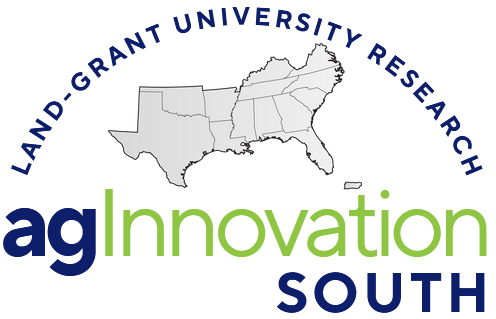
OLD SCC33: Cooperative Variety Testing Programs
(Multistate Research Coordinating Committee and Information Exchange Group)
Status: Inactive/Terminating
OLD SCC33: Cooperative Variety Testing Programs
Duration: 10/01/2020 to 09/30/2025
Administrative Advisor(s):
NIFA Reps:
Non-Technical Summary
Statement of Issues and Justification
SCC33 (formerly SRIEG-33) was formed in 1983 to provide a forum for information exchange and to coordinate activities of variety testing research and extension programs directed at row-crop production in the Southern region. The group has expanded to encompass all U.S. regions. Identifying adapted varieties for all regions (South, North Central, North East, and West) continues to be the most cost effective way to maximize potential crop production profitability and is an important requirement for a viable agricultural community. Selection of the best varieties available requires producers receive extensive, unbiased and up-to-date information on variety performance relative to regional, state and local environments and their production systems. Like the Southern row-crop production region, the North Central, North East and West regions all have distinct physiographic areas which are diverse in climate, soils, and prevalent pests. Since variety performance varies greatly with changes in environment, cropping systems, and pests, a broad and comprehensive exchange of information is essential. Much progress has been made in improving testing standards, procedures for releasing test results to the public, check varieties utilized, and interaction between the public and private sector in variety testing research. Continuation of the SCC33 Information Exchange Group is essential to continue this progress.
Project's Primary website is at http://www.uky.edu/Ag/wheatvarietytest/SCC-33.htm (direct link can be found under LINKS)
Projected Participation: Individuals responsible for variety evaluation research programs in state Agricultural experiment stations, 1890 experiment stations, state cooperative extension programs, USDA, and private seed company personnel will participate. Discipline areas mostly include agronomy, plant breeding, and crop and seed production.
Objectives
-
Improve variety testing in participating states through development of comparable test procedures, use of check varieties, and greater commonality of reporting variety test results,
-
Maintain a publicly-available directory of names and addresses of variety test personnel to facilitate cooperation and communication,
-
Provide a forum for discussion and resolution of problems common to public institutions and private organizations,
-
Recognize individuals making significant contributions to variety testing programs,
-
Expedite the transfer of information to crop producers and agribusiness clientele, and
-
Provide a centralized location for access to variety test data from all participating states via the SCC33 website
Procedures and Activities
We propose to continue holding a two or three-day meeting, usually in January or February, once a year where informational reports are given and regional activities are discussed and coordinated. To broaden the scope and level of participation, members of all state variety testing programs are invited and regularly participate in the annual meeting. Minutes of the annual meetings will be recorded and published in NIMSS and on the SCC33 website (http://www.uky.edu/Ag/wheatvarietytest/SCC-33.htm). A list of public and private variety test personnel will be maintained by the group and posted on the website in order to facilitate communication and cooperation among the group of members. The SCC33 website will also provide links to state variety testing programs (i.e. serve as a central repository for state variety test data [http://www.uky.edu/Ag/wheatvarietytest/SCC-33/iegpubs.html]). Likewise, the site will also have links to seed company participants to provide contact and company profile information.
Expected Outcomes and Impacts
- Greater commonality among variety testing programs
- Improved knowledge of modern agricultural research equipment
- Improved variety testing procedures
- Improved variety selection procedures for clientele
- Improved access to variety testing programs/data for end uses and evaluations
- Publicly accessible website for disseminating variety test data and information
Projected Participation
View Appendix E: ParticipationEducational Plan
Variety test personnel from private seed companies, USDA, and State Public Institutions will be notified and invited to all activities of the SCC33. The listing of persons in Appendix E is a resource for participants. The annual meeting will be designed to provide up-to-date information to attendees in subject areas that are pertinent to variety testing. Information from presentations will be posted to the SCC33 website.
Organization/Governance
Co-Chairs (one public/university representative and one private/industry representative) will be selected at each meeting for the following yearly meeting. These persons are responsible for developing an agenda, deciding the date and location of the annual meeting, making hotel/meeting space arrangements and developing a program of topics and speakers.
At the annual meeting, presentations are made and discussions follow. Official decisions will be made on the basis of a simple majority vote of those in attendance.